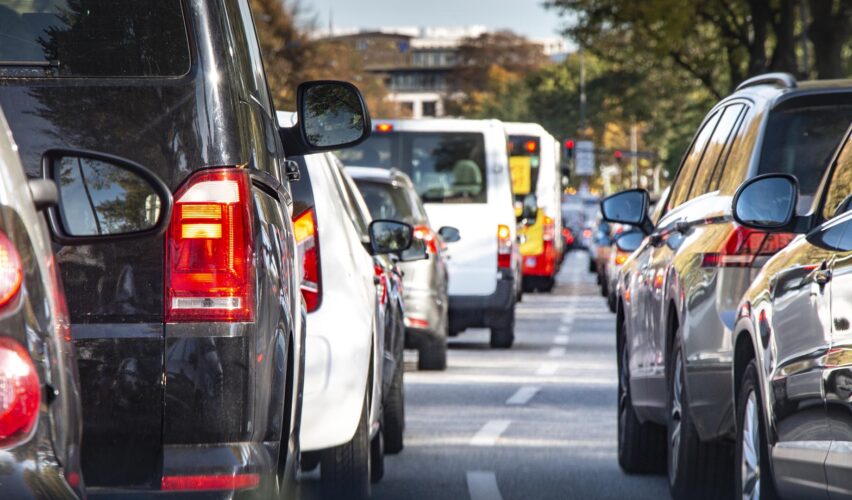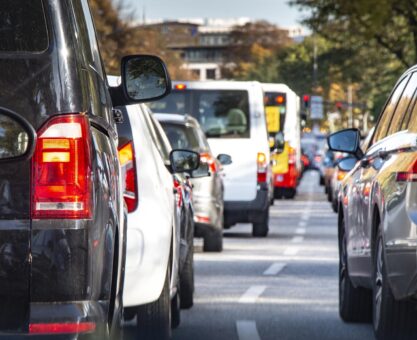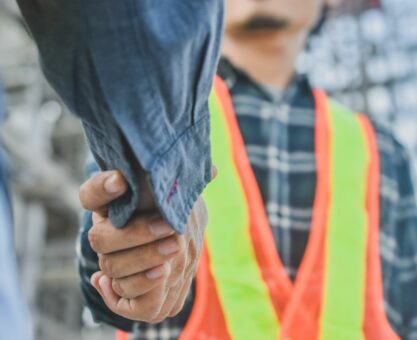The challenges of final mile delivery are ones all field service professionals understand only too well. The Pareto principle is alive and well in field service logistics. Every time our engineers head to a customer site in an urban centre – eighty percent of their journey time is likely spent on the last twenty percent of the trip as they navigate increasingly congested roads.
Indeed, the field service company that can reduce and minimize any additional delays in the final mile of the service journey will see improvements in a number of key metrics used within field service operations, including improved engineer or technician utilisations, higher customer satisfaction rates and reduced fuel costs.
The latter of these is becoming increasingly more important factor in why field service companies need to embrace solutions that can improve last mile logistics. While cost savings are always sought within any business, reducing unnecessary inner-city delays in 2022 is more important than ever before.
Sustainability has become a major driver for business
Prior to the pandemic sustainability was becoming an increasingly important topic within boardrooms across the globe. As we move more firmly into a post pandemic world our collective awareness of a growing need to be better custodians of the planet has if anything been sharpened even further by the two-year period of reflection.
This increasing prominence of sustainability is as apparent in the boardroom as it is in the high-street. It is now common practice for an organisation to ask to see your ESG (environmental, social, governance) strategies as part of their consideration of doing business with you. To put it bluntly, adopting sustainability programs is not only the right thing to do from a moral standpoint, it is fast on its way to being a necessity to doing business.
However, when we look at the over-arching goals of service operations we see that they are already deeply aligned with sustainability goals. Improving first-time fix rates, reducing mean-time between jobs and improving final mile parts logistics are all on the wish list of ever service manager. Each also reduces an organisations carbon footprint.
Fuel prices continue to be volatile
It is a cruel twist of fate that as the world of begins to take our first tentative steps away from a pandemic that brought generational suffering to us all and we begin to head towards a return to normality, that we see another existential threat on the horizon, this time as the terrors of men sweep across the world with Russian expansionism raising its head while the US looks more weak than she has been in many decades.
We have a clear policy at Field Service News to avoid all discussions outside of our area of expertise, which means we are fortunately able to avoid the quagmire of political discussions, an area I am neither knowledgeable enough, nor interested enough to comment on effectively.
However, what must be observed is that the political actions whether they be related to Brexit, COVID or now this dreadful war in Ukraine have all consistently shown us that we are always subject to major outside factors beyond our control.
The price of oil for example, has spiked from around $88 a barrel to a peak of $126 before returning back to settle in the $100 range. Such volatility translates to unpredictable prices at the pumps, and unpredictable pricing at the pump of course results in an unpredictable cost line – something that we should always seek to avoid.
Reducing our reliance on elements beyond our control
It is good business practice to remove and replace unpredictable cost lines as they make forecasting and planning harder and less accurate. Of course, with our economy and social structure so heavily based around our use of petroleum, even with the advent of electric vehicles, removing the increasingly unpredictable cost line of fuel is essentially impossible for all field service companies.
Yet, we can reduce our exposure to this risk by reducing our journey times. And once again, this is something that is at the heart of good field service operations.
This is why any opportunities to reduce logistical friction in the final mile of the service journey are so compelling for field service organisations. The ability to reduce fuel costs and tame that cost line in the P&L, while increasing engineer effectiveness and customer satisfaction and reducing our carbon footprint are all benefits of improving the final mile of the service journey.
Better technology isn’t always the answer, sometimes better processes are
With so much to be gained from improving our final mile logistics it is clear this should be an area of focus for any field service organisation – so how do we improve in this area?
Of course, dynamic scheduling is an important tool for allowing engineers and technicians to avoid the worst of delays. However, no matter how intelligent the algorithm making decisions within the engineer’s route planner is, if an engineer needs to head into the centre of town to pick up a part from the depot, then the likelihood is they will hit traffic.
Sometimes, it is better to rethink and redesign processes rather than to try to improve a process that is already flawed by simply throwing further resource and technology at it and hoping for the best. Rather than have a process that sends our engineer into urban centres to pick up parts required many organisations now use out of town locker solutions such as those offered by BT Final Mile here in the UK.
Taking advantage of their UK-wide infrastructure, BT originally established their smart locker network for their 3,000 strong workforce of field service engineers for exactly this reason. However, having been able to turn the operational challenge into competitive advantage BT established BT Final Mile as a commercial offering and the network of 1,900 lockers is now used by other leading field service organisations such as a number of the top 6 utility giants.
“We saved one of our customers over 40,000 miles in their first year alone which equated to just under 14 tonnes of CO2. This would also have resulted in a huge saving in fuel and vehicle maintenance costs.” – Mark West, Client Account Director, BT Final Mile
By rethinking their logistics chain companies that are using out of town locker solutions for their engineers are able to significantly overcome a large majority of the pain points of final mile service delivery and generally in doing so reduce costs and therefore see significant return-on-investment early into their adoption.
If your final mile headaches are growing with increasing fuel costs just adding another issue to factor in – it is time to consider how you can work with a network of out of town PUDO (pick up drop off points) such as the BT Final Mile smart locker network now.
Further Reading:
- Read more about Field Service Operations
- Read more about Service Strategy
- Read more about last-mile delivery
- Find out more about the BT Final Mile UK smart locker network
- Access over 20 premium resources on managing a field workforce (PRO)
- Access over 25 premium resources on COVID Recovery and operating in the new normal (PRO)
You can also find BT Final Mile at this year’s Field Service Expo on stand A1 where you will be able to see u close their one of their smart lockers and talk through how their network of smart lockers can help ease your final mile logistic challenges…
BT Final Mile will be alongside a selection of the leading solution providers in the industry offering ideas and guidance on a number of key challenges from recruitment and development of new engineers to enhancing your service triage with Artificial Intelligence.
Join us on the 5th and 6th October at Edgbaston International Cricket Stadium, UK. If you’ve not yet registered for your ticket do it now on the button below for free for two days of great education and discussion.














